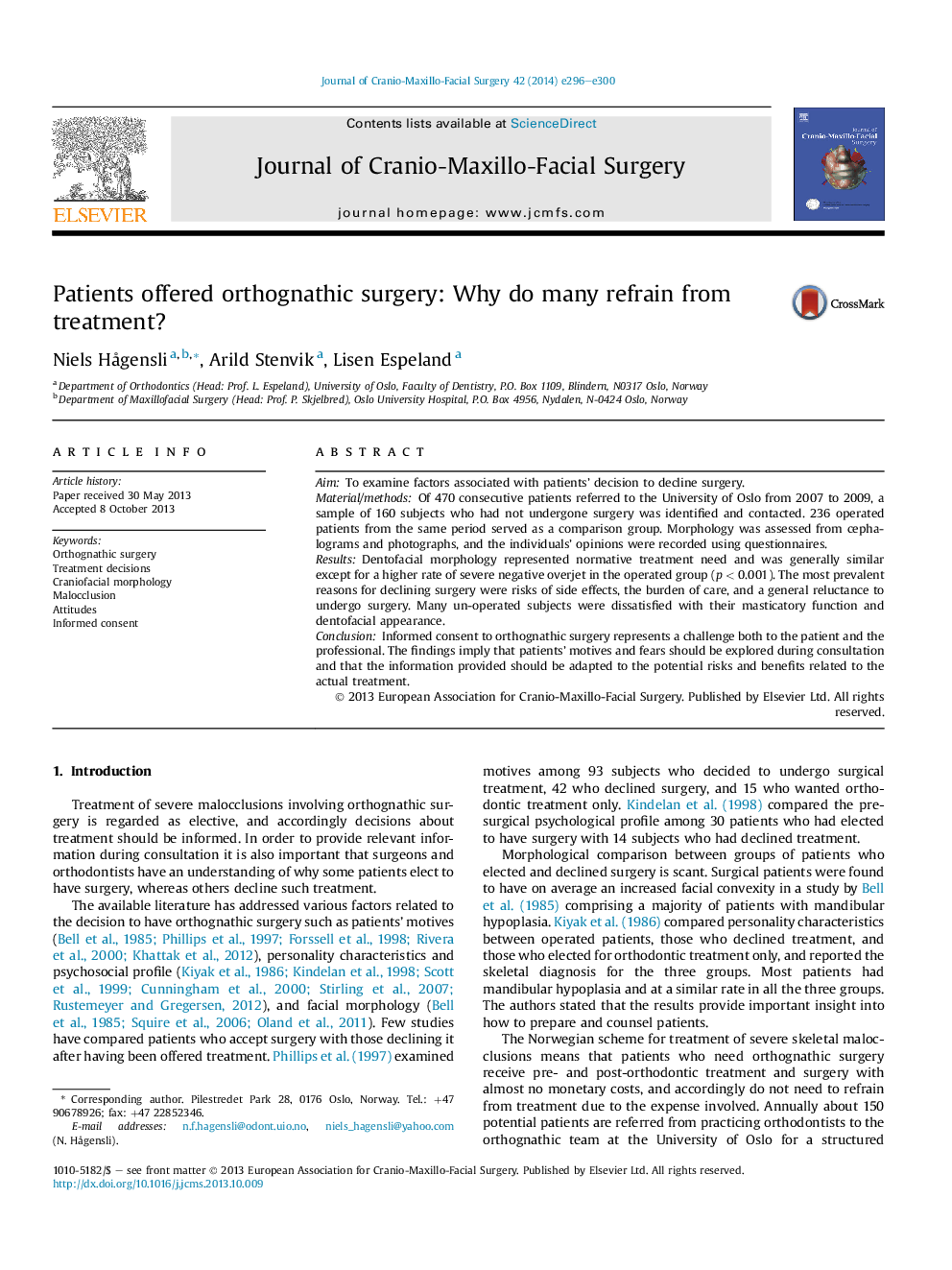| Article ID | Journal | Published Year | Pages | File Type |
|---|---|---|---|---|
| 3142643 | Journal of Cranio-Maxillofacial Surgery | 2014 | 5 Pages |
AimTo examine factors associated with patients' decision to decline surgery.Material/methodsOf 470 consecutive patients referred to the University of Oslo from 2007 to 2009, a sample of 160 subjects who had not undergone surgery was identified and contacted. 236 operated patients from the same period served as a comparison group. Morphology was assessed from cephalograms and photographs, and the individuals' opinions were recorded using questionnaires.ResultsDentofacial morphology represented normative treatment need and was generally similar except for a higher rate of severe negative overjet in the operated group (p < 0.001). The most prevalent reasons for declining surgery were risks of side effects, the burden of care, and a general reluctance to undergo surgery. Many un-operated subjects were dissatisfied with their masticatory function and dentofacial appearance.ConclusionInformed consent to orthognathic surgery represents a challenge both to the patient and the professional. The findings imply that patients' motives and fears should be explored during consultation and that the information provided should be adapted to the potential risks and benefits related to the actual treatment.
